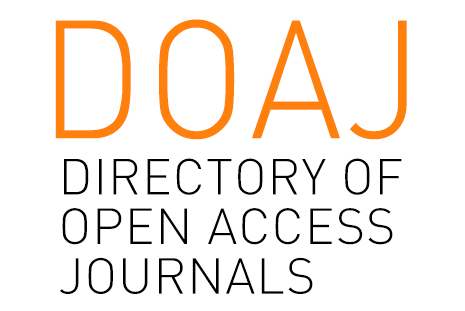Location
The Directory of Open Access Journals was launched in 2003 at Lund University, Sweden, with 300 open access journals and today contains ca. 10000 open access journals covering all areas of science, technology, medicine, social science and humanities.
DOAJ is a membership organisation and membership is available in 3 main categories: Publisher, Ordinary Member and Sponsor. A DOAJ Membership is a clear statement of intent and proves a commitment to quality, peer-reviewed open access. DOAJ is co-author to the Principles of Transparency and Best Practice in Scholarly Publishing (Principles) and DOAJ members are expected to follow these principles as a condition of membership. DOAJ reserves the right to reject applications for membership, or revoke membership if a member or sponsor is found to contravene the Principles. Read more about membership here.
DOAJ is a community-curated list of open access journals and aims to be the starting point for all information searches for quality, peer reviewed open access material. To assist libraries and indexers keep their lists up-to-date, we make public a list of journals that have been accepted into or removed from DOAJ but we will not discuss specific details of an application with anyone apart from the applicant. Neither will we discuss individual publishers or applications with members of the public unless we believe that, by doing so, we will be making a positive contribution to the open access community.
DOAJ publishes Information for Publishers on this site to help Publishers adhere to the Principles and to assist them in completing an application. DOAJ also publishes a list of FAQs relevant to all members of the publishing community, particularly libraries and authors. All information on this site is available to both members and non-members.
Aims & Scope
The aim of the DOAJ is to increase the visibility and ease of use of open access scientific and scholarly journals, thereby promoting their increased usage and impact. The DOAJ aims to be comprehensive and cover all open access scientific and scholarly journals that use a quality control system to guarantee the content. In short, the DOAJ aims to be the one-stop shop for users of open access journals.
Members:
Resources
Displaying 536 - 540 of 783Mainstreaming Natural Capital into Decisions: Integrated Valuation of Ecosystem Services
The purpose of the article is to review current paradigms in ecosystem services valuation, existing gaps and current trends in addressing those gaps. Natural capital, often defined as the stock of natural ecosystems that yields a flow of valuable ecosystem goods or services into the future, is often undervalued or not valued at all by governments, business and society, which leads to environmental degradation and loss of biodiversity.
A participatory procedure for estimating expropriation compensation. A logical/assessment model for the application of Article 21, Presidential Decree 327/01
This paper illustrates the application of the procedures for the activity of the Technical Board as called for in Article 21 of the general law for quantifying compensation for expropriation. By comparing other of alternative dispute resolution techniques and with specific focus on the valuation issue, this paper will propose a protocol for rationalizing the procedure and for reaching consensus on the assessment.
New Land valuation criteria after the spanish 2011 valuation of land regulation: the objectivation of building expectations in rural land
The land valuation regime has undergone one of its most important modifications at the hands of the 2008 Land Act and its 2011 Regulation. According to the so-called objectivity principle - which defines all established methods for the new basic situations of land - and according to the stated prohibition of taking into consideration building expectations arising from granted planning permission, the fact is that the existence of circumstances that are not a natural consequence of landowner investments made on the property is easily deducible.
A participatory procedure for estimating expropriation compensation. A logical/assessment model for the application of Article 21, Presidential Decree 327/01
This paper illustrates the application of the procedures for the activity of the Technical Board as called for in Article 21 of the general law for quantifying compensation for expropriation. By comparing other of alternative dispute resolution techniques and with specific focus on the valuation issue, this paper will propose a protocol for rationalizing the procedure and for reaching consensus on the assessment.
New Land valuation criteria after the spanish 2011 valuation of land regulation: the objectivation of building expectations in rural land
The land valuation regime has undergone one of its most important modifications at the hands of the 2008 Land Act and its 2011 Regulation. According to the so-called objectivity principle - which defines all established methods for the new basic situations of land - and according to the stated prohibition of taking into consideration building expectations arising from granted planning permission, the fact is that the existence of circumstances that are not a natural consequence of landowner investments made on the property is easily deducible.


